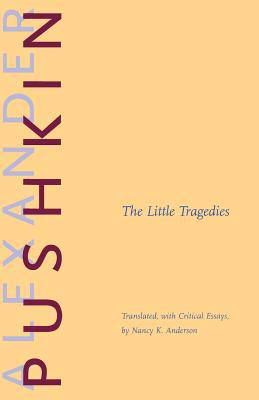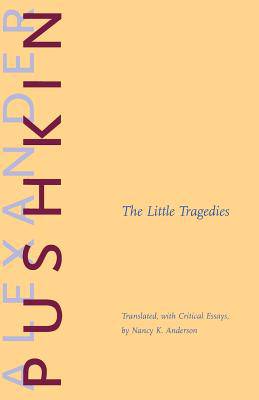
Je cadeautjes zeker op tijd in huis hebben voor de feestdagen? Kom langs in onze winkels en vind het perfecte geschenk!
- Afhalen na 1 uur in een winkel met voorraad
- Gratis thuislevering in België vanaf € 30
- Ruim aanbod met 7 miljoen producten
Je cadeautjes zeker op tijd in huis hebben voor de feestdagen? Kom langs in onze winkels en vind het perfecte geschenk!
- Afhalen na 1 uur in een winkel met voorraad
- Gratis thuislevering in België vanaf € 30
- Ruim aanbod met 7 miljoen producten
Zoeken
€ 57,95
+ 115 punten
Omschrijving
In a major burst of creativity, Russian poet Alexander Pushkin during just three months in 1830 completed Eugene Onegin, composed more than thirty lyric poems, wrote several short stories and folk tales, and penned the four short dramas in verse that comprise the "little tragedies." The "little tragedies" stand among the great masterpieces of Russian literature, yet they were last translated into English a quarter-century ago and have in recent years been out of print entirely. In this outstanding new translation, Nancy K. Anderson preserves the cadence and intensity of Pushkin's work while aligning it with today's poetic practices and freer approach to metrics. In addition she provides critical essays examining each play in depth, a discussion of her approach to translating the plays, and a consideration of the genre of these dramatic pieces and their performability. The four "little tragedies"--Mozart and Salieri, The Miserly Knight, The Stone Guest, and A Feast During the Plague--are extremely compressed dialogues, each dealing with a dominant protagonist whose central internal conflict determines both the plot and structure of the play. Pushkin focuses on human passions and the interplay between free will and fate: though each protagonist could avoid self-ruin, instead he freely chooses it.
Specificaties
Betrokkenen
- Auteur(s):
- Vertaler(s):
- Uitgeverij:
Inhoud
- Aantal bladzijden:
- 246
- Taal:
- Engels
- Reeks:
Eigenschappen
- Productcode (EAN):
- 9780300080278
- Verschijningsdatum:
- 10/04/2000
- Uitvoering:
- Paperback
- Formaat:
- Trade paperback (VS)
- Afmetingen:
- 140 mm x 216 mm
- Gewicht:
- 303 g

Alleen bij Standaard Boekhandel
+ 115 punten op je klantenkaart van Standaard Boekhandel
Beoordelingen
We publiceren alleen reviews die voldoen aan de voorwaarden voor reviews. Bekijk onze voorwaarden voor reviews.









